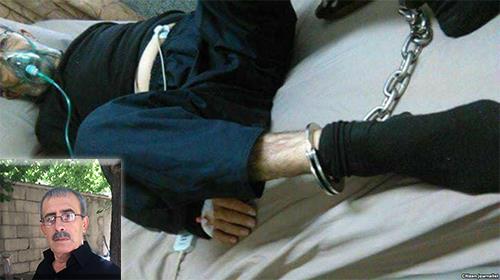Internal power struggles erupt in Iran over money laundering, terror support
- Get link
- X
- Other Apps
File photo of Iran’s Supreme Leader Ayatollah Ali Khamenei.
The internal power struggles in Iran have not stopped since 1979 Islamic Revolution that toppled the Shah’s regime and was monopolized by the religious establishment that controls all joints of the Iranian government.
The conflict between the wings of the reformist and militant regime has reached bloody levels against the backdrop of the Green Movement of 2009, which would have almost overthrown the hardliner conservatives loyal to Supreme Leader Ayatollah Khamenei, had the bloody crackdown by reformist not been suppressed.
Today and while Hassan Rouhani who is a moderate president with balanced relations with the moderate reformists on one hand and with the moderate conservatives on the other hand, who is at the helm of the executive power, at a time when the Islamic Republic is facing qualitative challenges in the face of harsh US sanctions, the hardliner conservatives left no chance but to ignore Rouhani and all those who sided with him.
The differences between the wings of the Iranian regime, these days revolve around two lists presented months ago in the Iranian parliament, the first list on Iran’s accession to Combating the Financing of Terrorism (CFT) and in its work against counterfeiting and terrorism financing, and the second list on the country’s accession to the Financial Action Task Force (FATF), an intergovernmental organization based in Paris, France, was established in 1989 and is active in the fight against money laundering. In 2001, the organization joined the fight against terrorism.
On Monday, Iranian Foreign Minister Mohammad Javad Zarif said: “Money laundering in Iran is a real issue.”
He pointed out in an interview with Khabar Online, that the “economic interests” of some figures who are involved in money laundering, are in opposition to Iran’s joining both “CFT” and “FATF” treaties to combat terrorism and money laundering, accusing opponents of flouting the atmosphere against these treaties.
The Iranian Shura Council approved the two lists, but the Guardian Council of the Constitution, which has major powers in Iran, rejected them. In this case, the two lists are presented to the Expediency Discernment Council of the System to decide on the matter.
The Iranian foreign minister’s comments on the spread of money laundering in Iran, sparked a turmoil in the government’s institutions, which prompted the National Security and Foreign Policy Parliamentary Committee today, Wednesday, to summon FM Zarif to parliament to explain himself regarding those statements.
“At the request of members of the committee, the foreign minister was invited to present evidence of alleged money laundering in Iran,” Hishmatullah Fallah Beshah, head of the National Security and Foreign Policy Parliamentary Committee, told Tasnim news agency which is close to the Iran’s Revolutionary Guards.
The lawmaker Beshah described Zarif’s comments on money laundering in Iran as “unacceptable” and “setting a precedent” and “non-specialized” and “undocumented accusations,” adding that even countries hostile to Iran did not direct such accusations against the Islamic Republic.
Beshah added that: “Facts about money laundering must be revealed regarding what Mr. Zarif said.”
Iran’s foreign minister had said in his controversial interview that: “Many people in Iran benefit from money laundering. Those who earn thousands of billions in money laundering are financially able to allocate tens or billions to publicize and incite the country against anti-laundering laws.”
“The total budget of the Ministry of Foreign Affairs is 1,100 billion Tuman, which is less than the budget of some cultural institutions which is connected to the country’s powerful apparatus, so we cannot deal with them when we are raising the issue,” Zarif said.
Opponents of CFT and FATF treaties argue that ratifying them could prevent Iran from supporting pro-Lebanese militias in the region, led by Hezbollah, and some believe the elite Quds Force, the external arm of the Revolutionary Guards Corps, would come under threat due to these treaties.
On Friday, many clerics and prominent figures in power, including leaders of Iran’s Revolutionary Guards and a group of parliamentarians, signed a petition against Iran’s accession to the CFT and FATF treaties.
On the other hand, Iran is also under pressure from friendly countries such as Russia and China to push them to join the two treaties. It is known that Iran needs the support of the two countries while the second package of US sanctions entered into force on November 5.
Zarif told the Iranian parliament on November 7, that: “The president of the Russian central bank told Mr Humati, head of Iran’s central bank three days ago, that we cannot do anything without FATF.”




Comments
Post a Comment